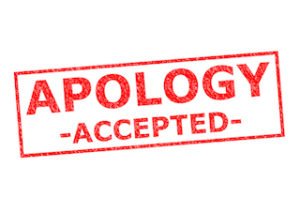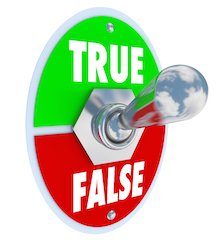Ever been slammed in an online review? How did you react—with calm professionalism or with angry indignation? And did you use the review as an opportunity to improve your insurance business or merely to defend your ego?
In today’s marketplace, online transparency is a requirement, period. But once you put your business out there, you must prepare yourself for negative feedback on consumer review sites such as Yelp, Angie’s List, and Google Places for Business. What’s more, when a consumer gets really angry, you must steel yourself for unhinged rants on Ripoff Report and other sites. And once the criticism lands, you must learn to take it in stride.
Of course, dealing with negativity is never easy. For example, say you’re a new financial advisor with only a few consumer reviews online. Even one negative review can really ding your reputation since it’s so visible. In this case, you might be tempted to delete it or to bully the person to take it down. Be careful! Either action can backfire, causing more damage than if you’d ignored the bad feedback in the first place.
Why not just delete the comment? Because this could make matters worse. Now instead of being contained on your Yelp account or Facebook fan page, the angry customer might take his anger to the wide-open Internet—Tweeting a nasty blog post or going ballistic on Complaints.com.
Another reason not to delete: most consumers realize no business is perfect. If they see you have only positive reviews, they will wonder why. Perhaps you’re deleting negative feedback or paying people to sing your praises. You’re better off allowing comments to reflect reality. Sometimes your performance will be off, but most times it will be great. And some people will be unhappy (it’s human nature), but most will be delighted with your performance. What’s more, if a reviewer is blatantly unreasonable, chances are your loyal fans will rally to your defense. Their positive comments will more than offset the occasional bad critique.
The final reason not to remove negative comments is a philosophical one. How can you claim to be a transparent company if you bury critical reviews? Wouldn’t you rather be known as a insurance or financial advisor that encourages open discussion than one who censors critics? If Apple can tolerate negativity on its online communities, then surely you can do the same (Apple’s off-the-charts profitability notwithstanding!).
Now, is attacking an online critic ever justified? Umm . . . no. Battling customers online will only drag you down to their level. As a professional, you never want to let your emotions get the better of you. You never want to insult or yell at clients. And you absolutely must never threaten unhappy customers with legal action for merely expressing their opinions—however mistaken those opinions might be.
So what’s the best way to survive nasty criticism? By developing a really thick skin. Here are some ideas that might help you:
– View all negative feedback as an opportunity to enhance your business. Your attackers are actually doing you a favor by sharing their experiences. Thank them—don’t attack them—for this priceless gift.
– Try hard to separate your ego from your business. When consumers file negative comments, they are not attacking you personally. They are merely sharing their thoughts about how your company performed. If you take yourself out of the equation, it will be easier to react dispassionately to negative feedback.
– Take the long view. A negative comment on a single day is insignificant in terms of your firm’s months and years of exemplary service. Most consumers will put bad comments in their proper historical context.
– View negative reviews or comments as unavoidable dings in the rough-and-tumble life of a small business.Because here’s the reality: mistakes happen, and some people will react disproportionately to them. It’s pointless to overreact to events that are normal, predictable, and ultimately of limited long-term significance.
Our best advice at the National Ethics Association? Stay committed to transparency. Don’t overreact to negative comments. And respond professionally to unhappy customers, promising to fix mistakes and thanking them for giving you a precious gift—their opinions.
For more information on online reputation management, please visit our Ethics Center. Or to include your Yelp reviews on your National Ethics Association profile (for members only), open your Member dashboard.













